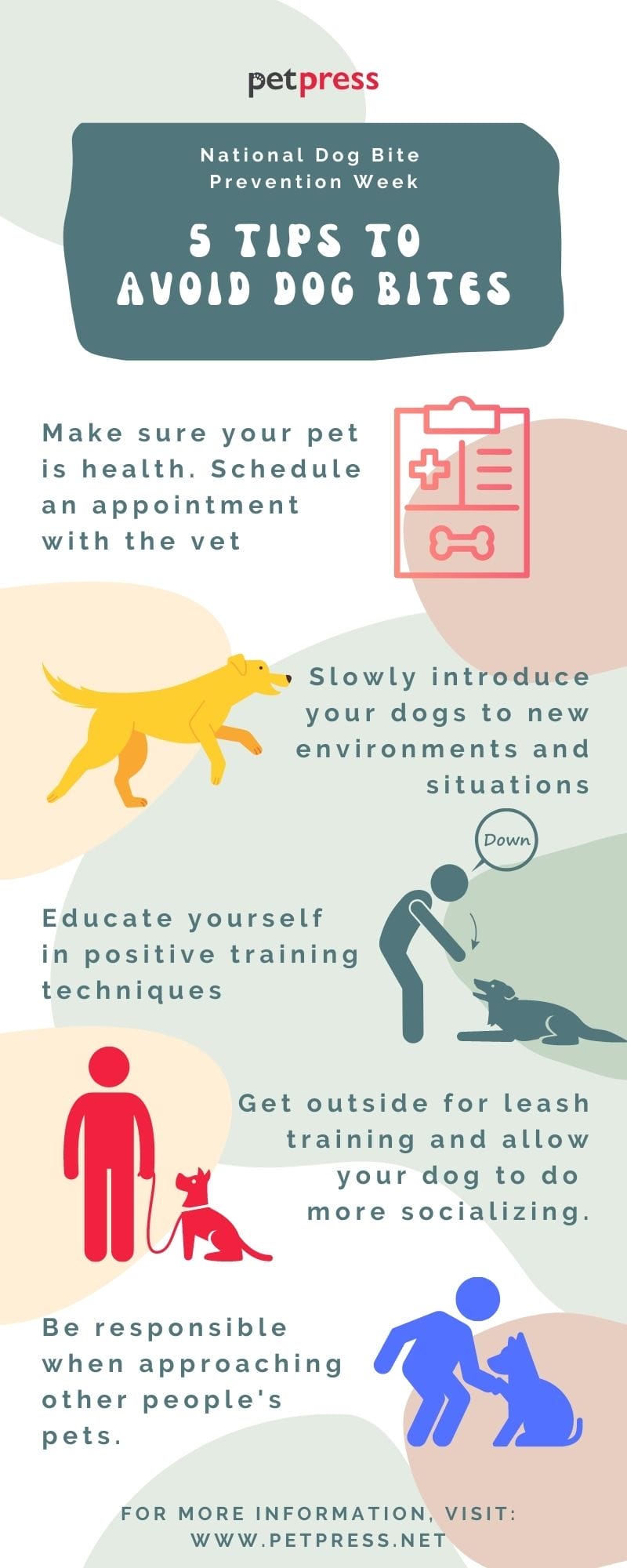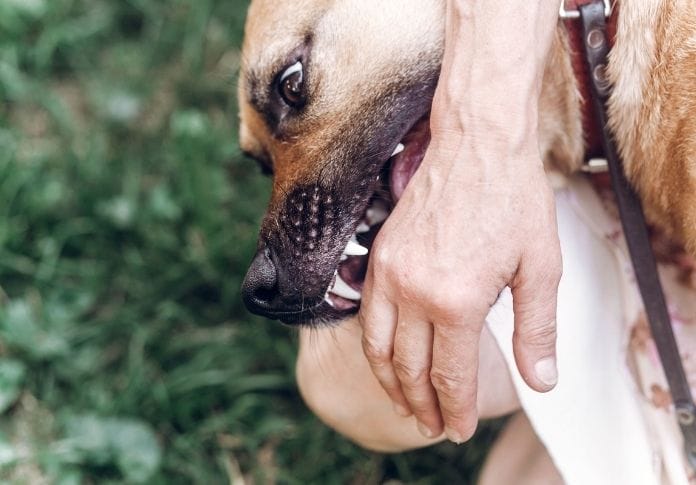National Dog Bite Prevention Week is an important time to remember that dog bites are a serious issue.
Every year, more than 4.5 million people in the United States are bitten by dogs. Of those, 20% require medical attention.
Many of these dog bites could be prevented if people knew how to properly interact with dogs. In this blog post, we will discuss five tips for avoiding dog bites.
Following these tips can help keep you and your loved ones safe from harm!

History of National Dog Bites Prevention Week
National Dog Bite Prevention Week starts every second Sunday of April and emphasizes that although dogs are nice animals, all of them can bite when caught off guard. A dog attack occurs when you are bitten more than once on the same day by a dog.
Contrary to the popular belief, you shouldn’t only worry about being bitten by a rabid dog. If your pet is cuddly or fuzzy, it may bite you if provoked.
It’s not about the dog’s breed when it comes to whether or not it will attack when provoked; it’s all about the dog’s history and behavior.

Rabies, a viral infection that attacks the brain and causes inflammation, resulted in death and panic among many civilizations since its discovery.
The first recorded instance of rabies causing death dates back to approximately 2200 B.C. when it was discovered in the Mosaic Esmuna Code of Babylon during the Sumerian era. The Babylonians were fined a lot of money if their dogs infected another person or animal with rabies.
In the first century A.D., Celsus, a Roman scholar, recognized that the rabies disease was transmitted via the saliva of the biting animal.
In collaboration with State Farm Insurance, the American Humane Association, the Insurance Information Institute, and Victoria Stilwell Positively, the American Veterinary Medical Association (AVMA) founded National Dog Bite Prevention Week as a part of a coalition project to raise awareness and teach safety around pets.
Dog bites statistics throughout the years
Millions of people—most of them children—are bitten by dogs every year in the United States, where there are an estimated 85 million canines. The majority of these bites, if not all, may be avoided.
- According to the Insurance Information Institute, insurance firms paid $853.7 million in 2020 for 16,991 dog bite and injury claims.
- The number of injury claims filed by people alleging their dog caused harm decreased by 4.6% in 2019, with payouts growing by 7.1%. In 2020, the average claim payment was $50,245, up 12.3% from $44,760 in 2019.
- According to State Farm’s claim data in March 2020, there were more dog-related injury claims than any other month last year, with a 21.6 percent increase in dog bites over March 2019.
To help avoid dog bites, the National Dog Bite Prevention Coalition recommends the following tips:
1. Make sure your pet is healthy.

Dogs are more likely to bite if they are sick or in discomfort. If your dog hasn’t been to the veterinarian in a while, schedule an appointment for a checkup to have his physical and behavioral health reviewed.
2. Don’t be in a hurry

If your dog has only interacted with you for a year, don’t go out in crowded settings or dog parks just yet. Try to gradually introduce your dogs to new environments and situations, use low-stress interactions, and offer lots of praises and rewards for excellent behavior.
3. Educate yourself in positive training techniques

Be consistent with commands. Well-trained dogs are less likely to bite out of fear or aggression. Be aware of a dog’s body language. If a dog is showing signs of aggression, such as growling or baring its teeth, back away slowly and do not make direct eye contact.
4. Get outside for leash training and allow your dog to do more socializing.

You can also join a dog park, which is a great way to help your furry friend socialize with other dogs in a safe and controlled environment.
5. Be responsible about approaching other people’s pets.

When approaching a dog, seek permission from the owner and check for indications that the dog wants to interact with you. Dogs occasionally just want to be alone, and we must respect and recognize this.
We need to stop believing that only certain dog breeds bite or that only certain types of bites can result in serious problems. This week is critical to stress the fact that even the most docile dog may bite when provoked.
- Does Cat Litter Melt Ice? The Complete Guide to Winter Safety - January 30, 2026
- Happy Tail Dogs: Understanding This Common Canine Condition - January 29, 2026
- How Cold Can Outdoor Cats Handle? Feline Winter Safety - January 27, 2026


GIPHY App Key not set. Please check settings